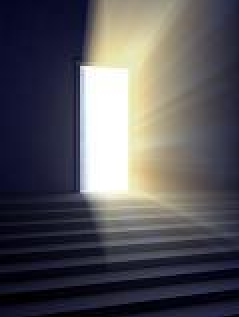
This week I’ve been trying to remember to observe ‘the present‘ as the continuous ‘arising‘ of experience. I’ve also tried to be mindful of how page 77 of DTS describes several views of the present:
·  One view of the present involves seeing it as the ‘central point of experience‘,
·  another view involves a ‘cutting‘ of the linear flow of past to future, which exposes the present as an empty ‘hollow‘ with no reality of its own,
·  and a third view involves the present as a ‘construct‘ of our ‘concern‘, the extent of focus on scope and content.
In my day-to-day encounters I seem to adopt the first view of the present, where ‘I’ take up a position ‘now’ and relate past information and future projections to current situations.
I also seem to play often with the third view in the exercises. I inquire into my ‘concern’ and the limits of my focus and scope opens and exposes more, in a multidimensional way. Whether it’s observing the linear progression, for instance, of tasting jellybeans and widening the scope to include more of what is experientially available to the senses, or observing myself painting a watercolor as the controlling self seems to get out of the way as ‘pointings‘ are transcended and experience becomes more intimate, the construction of my ‘concern’ is exposed, ‘melted’, and opened.
In meditation, though, when I want to ‘be present’ and ‘position myself at the leading edge of the future‘, I find I’m (as Jack said), “getting ready to be present differently“, and I use the second view of presence listed above. I essentially ‘cut’ the linear flow of past to future. When I leave the past behind, sitting in the now, and face the future, I’m facing a kind of openness with a welcoming attitude toward the unknown. There are arisings that emerge seemingly from nothing, from the open unknown. Not narrowing focus on them, but continuing to be open and welcoming whatever continues to arise, I seem to ‘lose myself‘. Position seems to disappear, and there is just openness and arisings that burst forth and dissolve often replaced by new arisings.
I really appreciate Jack’s image that balance in the present is like riding a bicycle, and ‘we keep our balance by constantly losing it‘, like ‘constantly falling into the future‘. I love how vivid that is! This falling into the open unknown requires a relinquishing of the tendency to narrow focus and to assume an allowing attitude toward the oncoming situation, which severs the dependence on the link to the past.
Still working with this, maybe more later.
David
